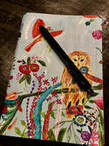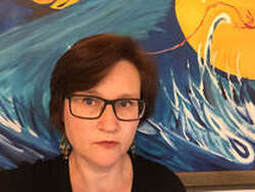Sacred Chickens
Menu
SACRED CHICKENS
 Teaching Poetry by Julie Carpenter I have recently started tutoring. Whereas teaching is more like preventative healthcare, tutoring is surgical. Students are preparing for specific tests or trying to catch up in a specific subject. The teaching styles can be somewhat different. Still, I like to keep up with ideas about classroom teaching, and I find that some students need to wake up different parts of their brains before they can focus on the immediate skills they are trying to acquire. While I was perusing the educational landscape, I came across this article: Why Teaching Poetry Is So Important, by Andrew Simmons. The article is thought provoking, and I recommend reading it even if you’re not currently in school, or you don’t have children in school; everyone is affected by the results of our education system. Simmons feels that poetry has been shuffled aside in the modern classroom, and he regrets the fact. He says, “In an education landscape that dramatically deemphasizes creative expression in favor of expository writing and prioritizes the analysis of non-literary texts, high school literature teachers have to negotiate between their preferences and the way the wind is blowing. That sometimes means sacrifice, and poetry is often the first head to roll.” He mourns this fact because he notes that reading poetry aloud, writing, and analyzing poetry is a “gateway to other writing.” Poetry values the succinct, descriptive, subconsciously rhetorical rendering of moments and objects. This makes students better able to grasp the point, to summarize, and to understand the emotional depths in all kinds of argumentation. Even science writing can require emotional and rhetorical appeals. (Read Paul Bogard’s lovely and poetic Let There Be Dark, a mixture of science and poetry designed to win the reader to his point of view.) Simmons notes that some students who don’t “get essays," love poetry, relieved by the ability to express themselves without fixed rules. Teachers can also use poetry to allow students to see how poets break and keep the rules of language and how the reader is affected in either case. Simmons makes a good case for bringing poetry back into the classroom in this short article. More than that, this article made me think about what we prioritze in teaching and why? Should we always focus on the what over the why? Do we need to take a moment to look up and see some small piece of the world from someone else's perspective? Poetry acknowledges the mysterious intersection between individual and universal perception. If this is not a goal of common education, shouldn’t it be?  Bio: Julie Carpenter is the creator of the Sacred Chickens website. She is dedicated to telling stories and making sure that indie writers and publishers have a way to be heard. She uses narrative, her own and others’, to help interpret the world. She has a Master of Professional Writing from the University of Memphis, with an emphasis in Composition Theory. She wants to bend reality one story at a time. Julie’s work has appeared in Fiction on the Web and will be included The New Guard. She is currently working on a novel.
0 Comments
Leave a Reply. |

Click Photo above to buy ebook or paperback from Amazon.
Here's the link to Barnes and Noble Or order through your favorite independent bookstore! Categories
All
|
 RSS Feed
RSS Feed